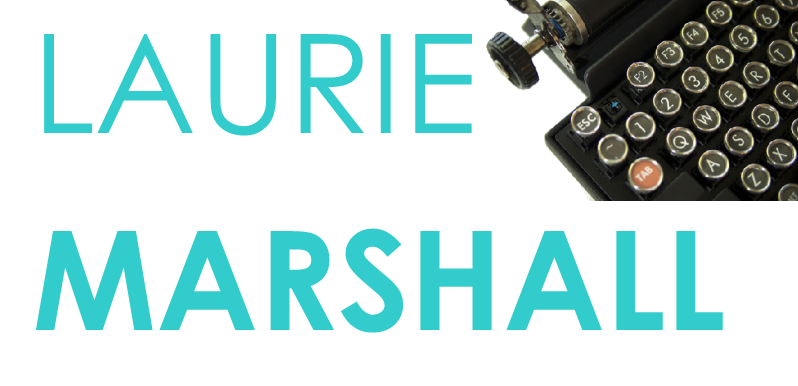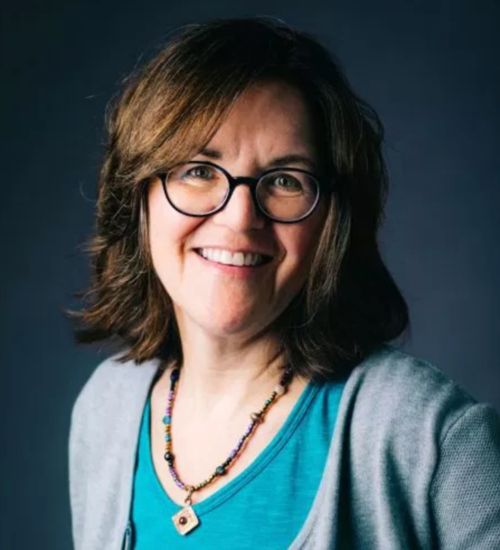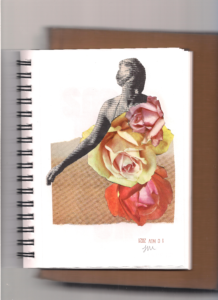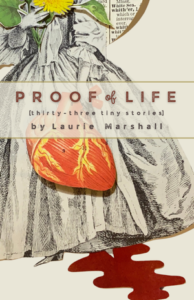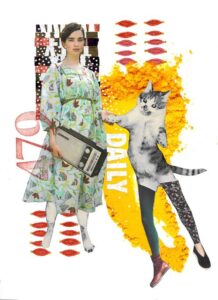Too often, women over the age of forty are expected to fade into the background. It doesn’t matter if we are experienced at whatever we’re doing or if we’re launching something new, the prevailing thought seems to be that we should step aside and let the next generation “have their turn”.
But guess what – some of us over forty haven’t had our turn yet.
R.L. Maizes was one of the first women who came to mind when I decided to start collecting these stories and sharing them here. She was on a panel at the AWP Conference I attended in Portland last year, and I loved what she had to say about the journey to getting her first short story collection published (“We Love Anderson Cooper” is out in paperback this summer!). She is a success story in a time when too many writers-of-a-certain-age find they’re being overlooked by the literary community that is often focused on the next “bright young thing”. Emphasis on young.
R.L.’s success proves that it can be done, and she has good advice about the determination it takes to reach the place where the word “published” is inserted before the word “author” in ones bio.
I read her collection last year and loved it so much I’ve recommended it to anyone looking for a new book to add to their shelf. I sent her a list of questions – just things I would like to know if I were sitting down with her – and she was kind enough to respond. I hope you enjoy this virtual chat, and subscribe to see more as they come online!
Q&A with R.L. Maizes
When did you figure out you were a writer? Was it something you knew since you were young, or did you come to writing later?
I wrote a staple-bound book called Unga and the Frog when I was around six. Animals played a large role in that book, as they do in my forthcoming novel, Other People’s Pets.
If writing is a second career, what were you doing before you started writing?
Writing is actually my third career. I was as an editor of children’s educational magazines at Scholastic after dropping out of college. That was my first career. Then I finished college and went to law school. Law was my second career. Writing fiction for adults is my third, and by far my favorite, career.
Who are some authors who inspire and challenge you, both as a reader and a writer?
So many authors inspire me. It’s hard to write a book, and harder still to write a good one. I admire Mary Doria Russell, author of the fantastic novel The Sparrow, who had an academic career prior to publishing fiction. Harriet Doerr inspires me as an older writer. She published Stones for Ibarra, her marvelous debut novel, when she was seventy four. Other books I’ve loved recently and learned from are Rebecca Makkai’s The Great Believers and All the Light We Cannot See by Anthony Doerr. I liked Beautiful Ruins by Jess Walter so much I vacationed in the Cinque Terre where part of the book is set.
Did you attend an MFA program? If so, how did it benefit you (or not)? If not, do you think it’s been harder to get published?
I don’t have an MFA. I can’t say if it’s easier to get published with one. What I can say is that it’s hard to get published period. It’s even harder to develop as a writer. It takes years of writing and reading mindfully.
Do you believe your experiences in writing/publishing have been about the same as writers younger than yourself? If not, what has been different?
I see opportunities open only to younger writers, fellowships, for example, and I wish those were open to writers of any age who were at the beginnings of their careers and hadn’t yet published a book. There was a time I wished I had started writing seriously when I was younger, instead of in my forties. I wished I’d been published earlier. But I’ve begun to feel that my writing is so informed by my life experiences that I’m glad I waited until I was older to start. I confess I was worried I would die before I finished my novel, Other People’s Pets, but I’m only fifty-seven, so that was just paranoia. (The book is coming out this July.) Maybe a younger writer wouldn’t have felt that.
What would you say to writers who are trying to break in as a person over 40? Any advice? Anything they should NOT do? Or maybe just reassurance that they’re not crazy?
Breaking in is hard for a writer of any age. Learning how to write well takes years. It takes patience and thoughtful attention to one’s craft. Writing is not like tennis or basketball, where older people are at a disadvantage. You have probably developed some wisdom over the years that will give you an advantage over younger people. You might have more life experience to draw on when thinking about human nature and your characters.
They tell us to “write what we know”. What do you know?
If there’s any truth to “write what you know”—and I’m not sure there is—to me it would be to write about your emotional truths. Even if you try to avoid them, that’s where your subconscious will go as you write. As far as writing about your own experiences, if you want to, that’s fine. Personally, I think it’s a great deal more fun as a writer to imagine yourself into other lives. My novel is about an animal empath and a burglar and I’ve never been either. I have shared my life with animals and I researched a great deal about burglars in the process of writing the book.
What’s your writing process? (By this, I mean, do you like working with prompts? Do you hit upon a theme or a thread and develop stories around them?)
I generally don’t like prompts, though I was once in a generative workshop and the prompts were so good I ended up writing several published essays in response to them. I don’t develop stories around a theme, but certain themes, such as alienation, recur in my work.
How is your process different for short stories vs. essays vs. a novel?
I don’t outline stories, but I sometimes outline essays. I created an outline for my novel but not until I had a first draft. So at this point I’m both a pantser and a plotter.
Tell me about your writing community. Do you have a group you spend time with (book club, writing group, etc…) or are you pretty solitary?
Over the years, I’ve been in two writing groups and I highly recommend them for support, feedback, and as an excuse to get together and eat. I’ve also participated in numerous writing conferences and workshops where I met and became friends with wonderful writers. I’m part of several online writing communities, too. That said, I also enjoy solitude and make sure to protect my writing time.
Coffee or tea? What kind of milk?
Coffee. Soy milk because I’m vegan.
What’s your favorite way to “cleanse your palate” when you need to step away from the page for a bit?
Walking my dog and teasing my cat with a fish toy. Seeing plays, though not as often as I’d like. Of course, reading. I’m struggling to learn to play guitar. I volunteered last election cycle and plan to again. I’m not proud of this, but I’m addicted to the reality shows Shark Tank and International House Hunters. I could try to justify those addictions, but I’ll spare you.
****


